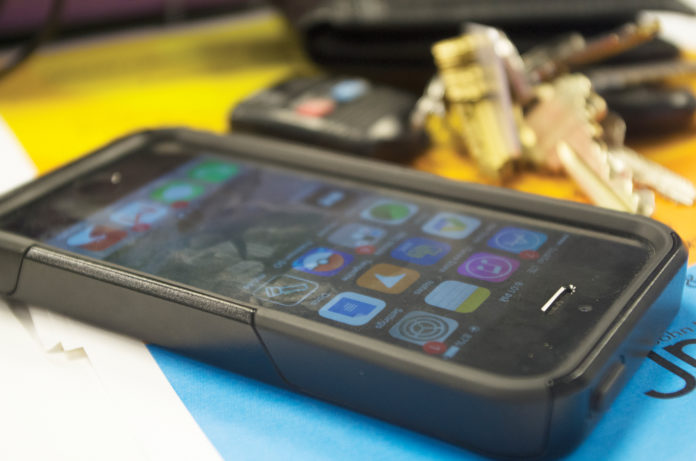The Electronic Product Recycling Association (EPRA) is focusing on their Recycle My Electronics initiative around Waste Reduction Week which runs the week of Oct. 18. Each day of the week is focused on an aspect of waste reduction and Wednesday is around E-Waste or electronic waste.
Each day of the week has its own waste related theme and Wednesday is E-Waste which is related to Electronics Recycling.
Gayleen Creelman of a Prince Albert director of the EPRA explained that Monday was the Circular Economy and Kick Off, Tuesday was Textiles, Thursday is Plastics, Friday is Food Waste, Saturday is the Sharing Economy and Sunday is Swap and Repair.
“Waste Reduction Week is where there is a focus on how residents and businesses can reduce their environmental footprint through initiatives for waste reduction,” Creelman said.
The EPRA is a not-for-profit, industry-led organization that oversees a government-approved, end-of-life electronics recycling program throughout the country.
Residents and businesses can drop off their unwanted electronics free of charge for responsible recycling at any EPRA/Recycle My Electronics authorized drop-off location.
“It’s important thing for a number of reasons, one Waste Reduction Week is the different days reflecting on the different initiatives so that residents can become more aware of their impact on purchases, on their recycling habits, on their re-use habits and how all that has an impact on the future and what happens with the items because they don’t have to go to waste with the items once they are done with them at their end of life for their personal life,” Creelman said.
She explained that the EPRA uses Waste Reduction Week to create more awareness around the Recycle My Electronics program and why they want to collect old electronics. This includes things like where the electronics can be dropped off and what happens after to the electronics.
EPRA/Recycle My Electronics programs ensure that safe and secure electronics recycling is accessible to all Canadians, through its network of over 2,500 authorized drop-off locations across the country.
Drop off locations include all SARCAN locations in Saskatchewan and municipal landfills and retail locations such as Best Buy, Staples and Visions Electronics.
“We also work with McDonald’s Metals in Prince Albert, they are one of our drop off locations,” she said. “So we go to the Highway 55 landfill that’s already in Canwood is part of our collection network.”
The best way to find a location is through the website recycleMYelectronics.ca and enter your postal code according to Creelman.
“Now remember it is initially set at 10 kilometers, so if you’re in Saskatchewan it is not 10 kilometers for most people in the rural areas you might want to go to 100 kilometres so then it will give you a few options to go to,” she said.
One important aspect of electronics is that they don’t create a bunch of waste. Since the components are metals, plastics and glass they can be reused countless times. She explained that metals can be constantly returned to the manufacturing supply chain.
“With respect to the plastics, plastics in electronics are different than your kitchen plastics like your yogurt containers and your milk jugs and stuff like that, they are made of a more durable plastic and for the most part they go back into the manufacture of electronic devices or into sturdier plastic material. The glass is then melted and returned back to glass. If it has lead in it the lead is separated,” she said.
She said it is important to recycle electronics because it returns to the supply chain.
“The resources can be infinitely reused so it’s a different way of reusing it. We are breaking it down into its component material so that it can go back into the manufacturing supply chain and it can come back as something completely different than what it originally went in and was purchased for the last go round,” she said.
The age of the device that is recycled doesn’t matter and devices can always be recycled. This is because the components are the key part of the recycling and they can be broken down.
“And all of the cords and everything that plugs into those devices is also recyclable through our program,” she said.
Creelman added when recycling things such as cell phones it is important to wipe data and remove SIM cards. This is assisted by the next step in the process.
“The next stop after dropping it off at one of our collection locations is it goes to one of our processors in Canada where it is taken apart, never turned on, never scavenged for parts. We just simply take it apart and then shred the material,” Creelman said.
Another interesting fact is that the Olympic Medals at the recent Tokyo 2020 Olympics were made of 100 per cent recycled electronics.
“Canada was the first in Vancouver when we had the Winter Olympics. We were the first ones to put recycled material into the medals but we weren’t 100 per cent – we couldn’t be 100 per cent like Japan was,” Creelman said.


